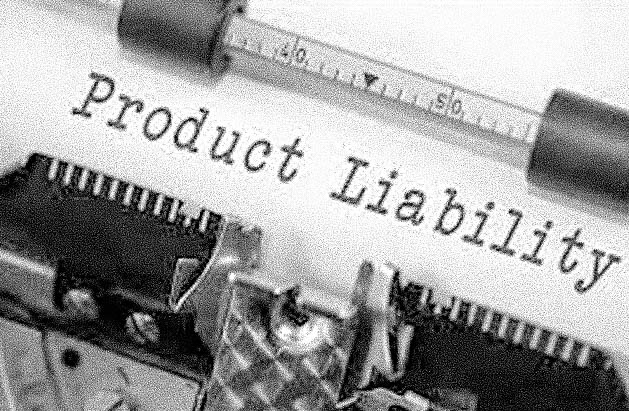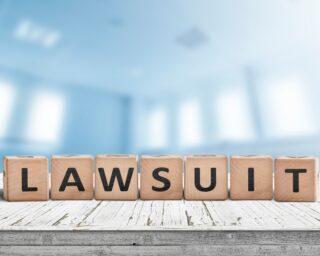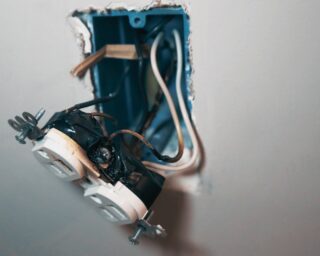
The grounds for a product liability claim are not as burdensome as they are for most personal injury claims. Product liability is the legal obligation of a manufacturer, seller, or any other party along the distribution chain to compensate buyers and users for damages or injuries caused by defects in purchased goods.
Under the concept of strict liability, which governs most defective product claims, a designer, seller, or manufacturer of a defective product may be liable for another person’s injuries, regardless of the steps he or she took to ensure the defect never occurred. Whether the injured party purchased the product or merely used it, that person can file a product liability claim.
What Are the Types of Product Liability Claims?
Although there exists a wide range of defective product cases, there are generally three categories of product liability claims: manufacturing or production defects, design defects, and failure to provide adequate warnings or instructions regarding the proper use of the product.
What Are the Elements You Need to Prove in a Product Liability Claim?
The majority of personal injury lawsuits are based on proving negligence, or that the defendant was at fault for the accident. In strict liability personal injury lawsuits, the plaintiff need not establish fault or intent. All he or she must prove is that
- The product was sold in an “unreasonably dangerous” condition.
- That unreasonably dangerous condition existed when the product left the defendant’s control.
- The dangerous condition was the proximate cause of the plaintiff’s injuries.
Strict liability can increase your recovery. Multiple parties can be held accountable for the harm caused by a defective product. The injured party can name the manufacturer in the lawsuit, for example, while also naming the designer, the wholesaler, or the retailer.
The catch is that the injured party must demonstrate that each added party contributed to the injuries and caused them to occur. Deciding which parties to add to your claim can be challenging, however. That’s why it’s critical to speak to an experienced product liability attorney before compiling your defendant list. Your attorney will identify the parties that played a role in the lifecycle of the defective product that caused your injuries.
What Types of Product Defects Lead to Liability Claims?
To understand the nature of the three general types of product liability claims, let’s take a look at each one individually.
Manufacturing Defects
Defects during manufacturing are the most common cause of product liability claims. These can include subpar materials, contamination, a manufacturing error, or a mistake on the assembly line, causing some vital steps to be skipped in the manufacturing process. In a lawsuit primarily based on a manufacturing flaw, it is alleged that although the underlying design of the product was entirely safe, something went wrong during the manufacturing process to render it unsafe.
Design Defects
Products posing an unreasonable risk of harm may have design defects. If the design of a product is inherently hazardous, it can result in serious injuries or death. A civil action based on defective design alleges that the product is inherently dangerous due to its design alone, rather than a manufacturing error. Common examples cited in flawed design cases include cars that tend to roll over when making turns, lines of toys that present a choking hazard for infants, and table saws that are designed with faulty blade guards. Manufacturers are legally allowed to sell dangerous products like table saws. You can easily buy power tools, firearms, alcohol, and cigarettes. In most cases, consumers can’t sue the manufacturer if they are injured or made ill by using an inherently dangerous product, unless a design defect is present.
Marketing Defects
Marketing defects are also commonly known as warning or labeling defects. Product liability cases centered on marketing defects typically pertain to deficient or incorrect warning labels on a product, on that product’s packaging, or in that product’s instruction booklets or inserts. Inadequate risk warnings, insufficient instructions for safe use, or misrepresentation of a product can all contribute to the potential for injury. This is commonly seen with prescription medications. A patient may take a specific medicine only to experience detrimental side effects that the pharmaceutical company did not disclose. Companies may also face liability if their marketing creates unrealistic expectations. A “windproof and leakproof” window could cause problems, for example, if it turns out that the window does not provide that level of protection and someone is injured as a result.
What Are the Most Common Product Liability Cases?
The most common products that may cause a serious injury or a wrongful death include
- Faulty motor vehicles or vehicle components
- Dangerous furniture or household appliances
- Contaminated foods
- Hazardous children’s products, such as toys, cribs, and infant sleepers
- Unsafe prescription drugs and defective medical devices
- Defective power tools or industrial equipment
Do You Have Grounds for a Product Liability Claim?
When you file a product liability lawsuit, you must provide the court with a reason as to why the manufacturer, distributor, or other party is liable for your injuries. In product liability claims, there are several potential grounds for a product liability claim: Strict Liability, Negligence, Breach of Express Warranty, and Breach of Implied Warranty.
Strict Product Liability
As previously stated, a party can be held liable for injuries under the doctrine of strict liability without you having to prove the party was negligent or lax in its duties. In Clark County, strict liability applies to those who manufacture, distribute, or sell defective products that cause harm to a consumer. To obtain compensation, you need only show that: the product was defective, the defect existed when the product left the defendant’s possession, you used the product in a manner that was reasonably foreseeable by the defendant, and the defect was a cause of your injury.
Product Liability Negligence
If strict liability does not pertain to your case, your product liability lawyer may file an injury claim based on negligence. Negligence stems from a defendant’s duty of care—the requirement of companies that design, make, or sell you a product to act reasonably. A breach of duty can be proven by demonstrating that the company knew, or should have known, about the defect and failed to fix the defect appropriately. To obtain compensation, you need to show that: the designer, manufacturer, or seller had a duty of care to you, the designer, manufacturer, or seller breached that duty, the breach of that duty was the cause of your injury, and you suffered actual damages as a result of your injury.
Breach of Warranty
If you are injured by a defective product, you may sue a manufacturer or seller on the grounds that they breached their warranty to you. The two types of warranty that can be breached are referred to as express warranties and implied warranties.
Express Warranties in Product Liability Claims
According to Nevada law, express warranties are those that are stated explicitly. These warranties are usually printed on the product or described in a document provided with the product. The written warranty is very specific. It guarantees that the product you purchase will meet a certain standard of quality. If the product does not meet that quality standard, the manufacturer will replace or repair it at no cost. An example of an express warranty is the printed one-year warranty that comes with a toaster or a blender that you buy.
There is also a verbal express warranty, such as when a car salesman promises you that a car he or she is selling you will run for 60,000 miles. Should the vehicle break down before that point, you may be able to file a claim. Verbal warranties, however, are much more difficult to prove than written express warranties.
Implied Warranties in Product Liability Claims
An implied warranty is a bit more abstract. When you buy a product, you expect it to work as it is intended. Failure to meet this standard constitutes an implied breach of warranty. For example, suppose you buy a dishwasher that is incapable of washing dishes. Because you received a defective product that does not function as it is supposed to, the dishwasher manufacturer has breached the implied warranty.
In any of these cases, if either type of warranty is breached, you suffer an injury, and you incur damages resulting from that injury, you may have the grounds for a product liability claim against the manufacturer or retailer.
An Attorney Can Help Determine Whether You Have Grounds for a Product Liability Claim
There are a lot of nuances to Las Vegas product liability laws. If you suffer a product-related injury, an experienced product liability lawyer can help you determine whether you have grounds for a product liability claim, who to hold liable in your claim, and how much compensation you may be entitled to receive.



